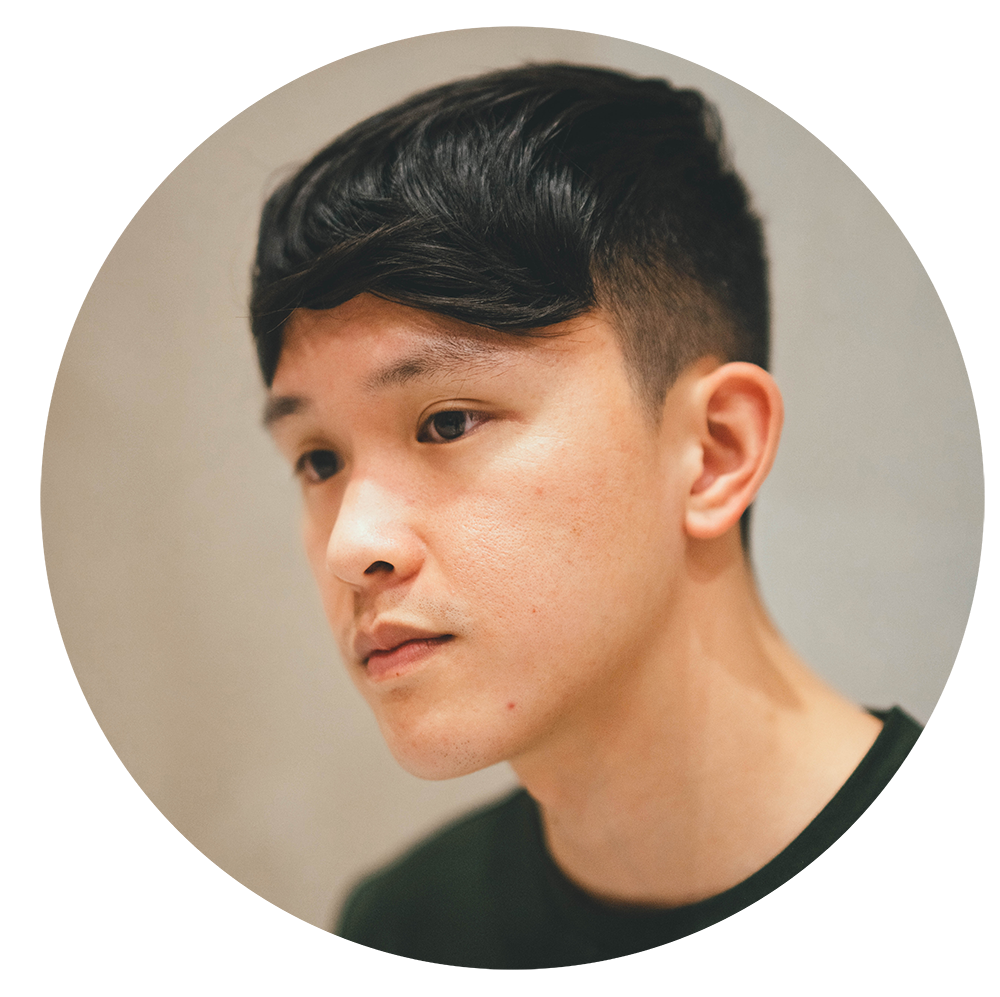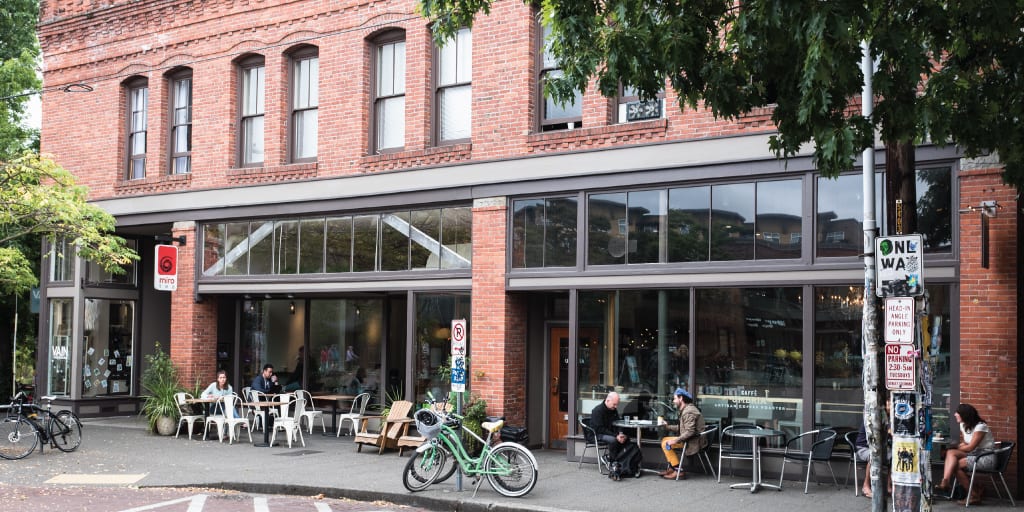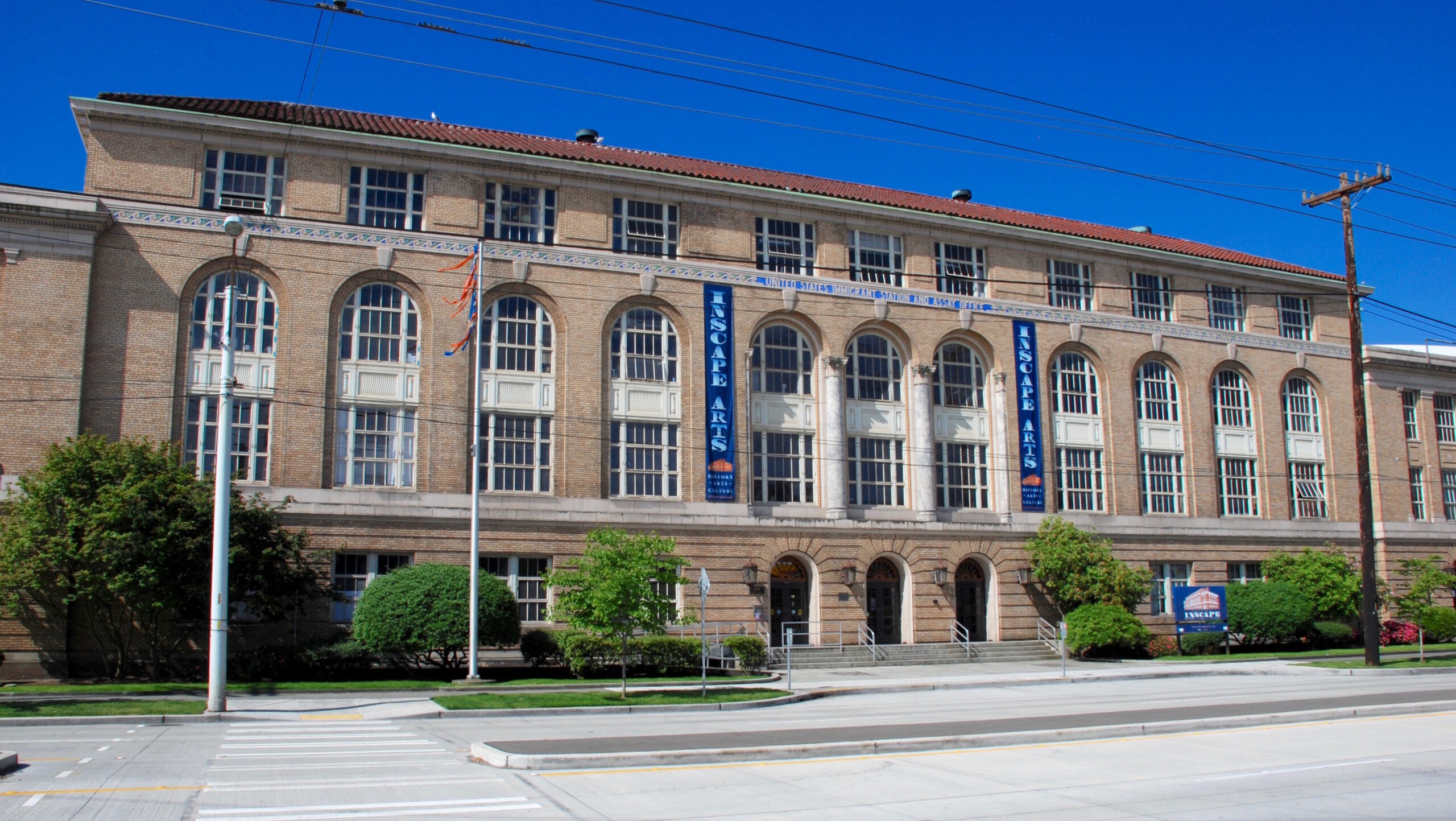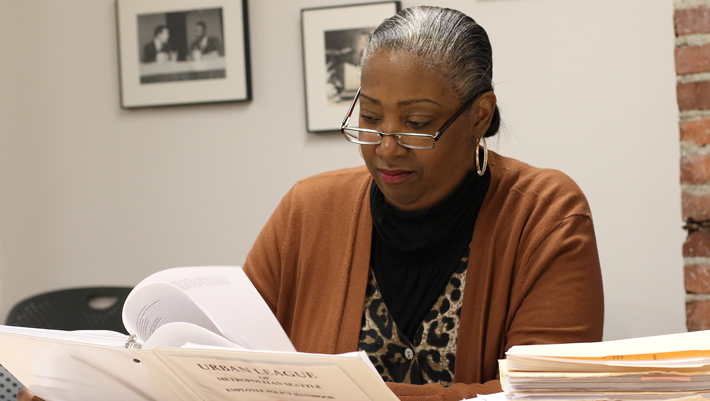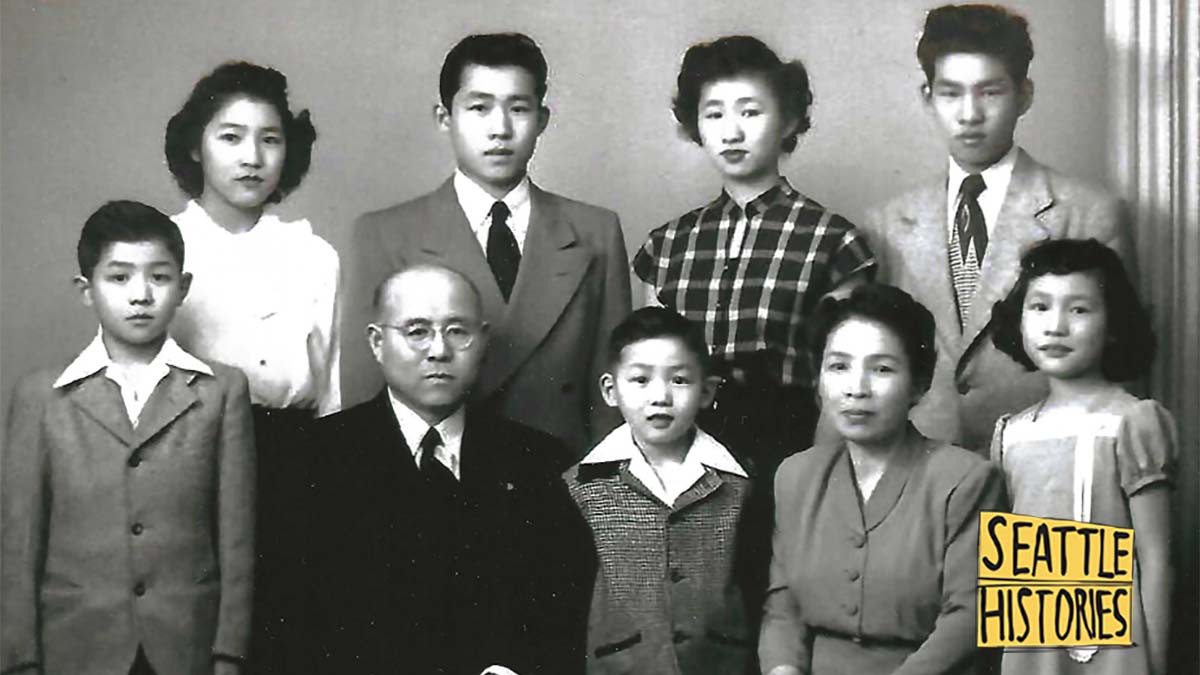 Ichikawa family photo, 1955
Ichikawa family photo, 1955 Historic preservation in Seattle begins with community. The Seattle Histories storytelling project highlights the places, people, and events that have shaped the history of Seattle’s communities. These stories, told by community members, emphasize experiences and narratives that may have been overlooked or misrepresented in our city.
Minidoka is the First Camp Your Grandma is Incarcerated in, Crystal City is the Second
By Troy Osaki
You thumb through your grandma’s yearbook
from when her middle school-self wore
whatever dress her mother could conjure.
Maybe it belonged to a neighbor girl
from another barrack who grew out of it.
Maybe it was unhemmed but fit well
enough. In camp, your grandma couldn’t miss
school without every other kid finding out
so instead, she missed her bedroom
the daffodils off 14th near the temple,
how smooth Lake Washington was
midsummer. She missed her dad
who looked like her but was taken
elsewhere. In Germany, a grenade
goes off & your grandma is shoveled
onto a train. Texas smells like pinewood
& sunburn. There’s an unending fence
similar to before. Your grandma is back
with both her parents & the war
somehow feels a bit bearable.
The country you & her were born in
eventually wins & still she isn’t
given back her dad’s laughter, his morning
hum, all of what disappeared
for three years until her family was
imprisoned together. Decades after
your grandma is released she returns
to each camp her dad wrote to her from.
Montana Louisiana New Mexico Texas.
The land is bare & whatever mess hall
or guard tower was once there isn’t
as if the war is done, as if there isn’t
a daughter left who’s separated
from her dad. Somewhere a daughter
still is. If not in a camp, then at an airport
or behind a wall. Somewhere a dad
not your grandma’s hasn’t seen the sun
in three days, hasn’t breathed beyond
cement walls since before detainment.
& still your country says it won the war,
says it’s proud of its name in its mouth.
You are in your grandma’s home
as she bakes a sheet of sugar cookies.
Her memory becomes a kitchen knife
you hide beneath your pillow. You sharpen
its blade every night. You trust no country
that can smile & say its own name
with so much of someone else’s blood
in its mouth. It’s 1941 & you are at the center
of your grandma’s camp. She’s looking
at a mountain miles away. Says sometimes
I stand here, right here, staring & I swear
I can hear the other side.
